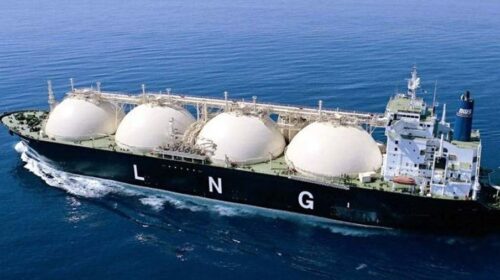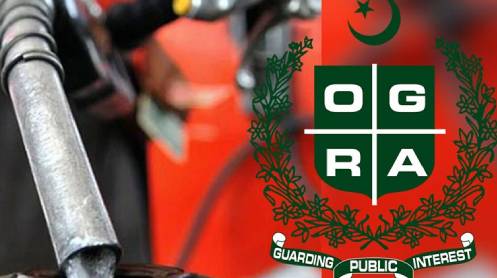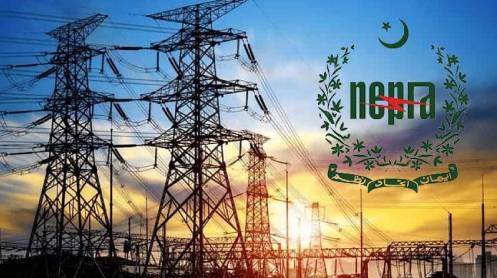In a new development, the government has moved the London Court of International Arbitration (LCIA) against the defaults of LNG term cargoes by two LNG trading companies — Gunvor and ENI, reveal official documents available with The News.
“On account of 10 defaults, seven by Gunvor and three by ENI, Pakistan had to purchase some spot LNG vessels from international market at higher prices up to $25.1 per MMBTU which led to an increase in higher power tariff in the country, resulting into a gigantic increase in input cost of industrial production as well. The non-availability of 10 term cargoes also exposed the country to a massive gas deficit in the country owing to which gas supply to the CNG sector has been disconnected even in the ongoing summer season. The gas supply to captive power plants for both export and local industries has been slashed down by 50 percent. Against the demand of the power sector which stands at 690mmcfd, only 550mmcfd gas is being supplied. The shortage caused by the defaults is taking its toll on the country’s resources as Pakistan opted for the expensive furnace oil and diesel to generate electricity,” a senior official privy to the development said.
Official documents show that the Petroleum Division had sanctioned the amount of 10,000 Britain pounds on March 15, 2022, to the Pakistan LNG Limited to make payment to LCIA in respect of Arbitration No225405 against Gunvor Singapore and Gunvor International. The PLL had earlier sent a letter to the Petroleum Division on March 14, 2022, asking for the release of foreign exchange allocation of 10,000 Great Britain Pounds to make payment to LCIA.
The government has also initiated the process for the appointment of legal counsel who will fight Pakistan’s case in LCIA against Gunvor and ENI and to this effect the office of Attorney-General has initiated the required process in response to the letter written on March 29, 2022, by the Pakistan LNG Limited (PLL).
The dates of the official documents suggest that it is the PTI government’s decision to move the LCIA against the defaulting LNG trading companies. A top source at the Energy Ministry claims that the Pakistan LNG Limited has also gone to LCIA against ENI which has also defaulted on the LNG cargoes that were destined to reach Pakistan.
“Both the top managements of Gunvor and ENI have been communicated by the PLL that it is going to move LCIA against the defaults of LNG term cargoes breaching the agreements signed in 2017.”
However, the PLL management, when contacted, opted to keep mum over the development and said it will neither confirm it nor deny it. According to official details, Gunvor has defaulted seven times. It had first backed out from delivering a cargo on Nov 19, 2021, then on Jan 10, 2022, and then again on March 11, 2022. Then Gunvor informed the PLL in March that it had cancelled its four terms of LNG cargoes, saying that it would not be able to provide cargoes in its remaining tenure of the term agreement that is going to end in July 2022. Cargoes were scheduled to arrive on April 15, May 14, and June 4 and 9, 2022.
In 2017, the PLL had also inked a 15-year term agreement with Italy-based ENI, which had defaulted four times. The first default had happened in January 2021, when ENI delivered half the cargo. It had also defaulted in November 2021 and March 2022.
Under the 15-year contract, ENI was bound to provide an LNG cargo at 12.14 per cent of Brent. In the first and second year, ENI was supposed to provide LNG at 11.6247 per cent of Brent. In the third and fourth year, ENI would provide LNG at 11.95 per cent of Brent, whereas in the fifth year and onwards the cargoes were scheduled to be provided at 12.14 per cent of Brent. The agreement with ENI will end in 2032.
“The term agreements with ENI and Gunvor signed in 2017 are flawed and not in the interest of the country,” the official said. “In case LNG trading companies commit default, the PLL can impose a penalty of 30 percent of the term cargo price and not more than that.” However, he said, the PLL is bound to pay 100 percent price of the term cargo under take or pay agreement if Pakistan, for any reason, cannot absorb the cargo in its system. In the wake of the flawed agreement, LNG trading companies do not hesitate to commit default, as they are ready to pay 30 percent of the term cargo which they sell in the market for windfall profits.
Under the 15-year contract, ENI was bound to provide an LNG cargo at 12.14 per cent of Brent. In the first and second year, ENI was supposed to provide LNG at 11.6247 per cent of Brent. In the third and fourth year, ENI would provide LNG at 11.95 per cent of Brent, whereas in the fifth year and onwards the cargoes were scheduled to be provided at 12.14 per cent of Brent. The agreement with ENI will end in 2032.
“The term agreements with ENI and Gunvor signed in 2017 are flawed and not in the interest of the country,” the official said. “In case LNG trading companies commit default, the PLL can impose a penalty of 30 percent of the term cargo price and not more than that.” However, he said, the PLL is bound to pay 100 percent price of the term cargo under take or pay agreement if Pakistan, for any reason, cannot absorb the cargo in its system. In the wake of the flawed agreement, LNG trading companies do not hesitate to commit default, as they are ready to pay 30 percent of the term cargo which they sell in the market for windfall profits.





